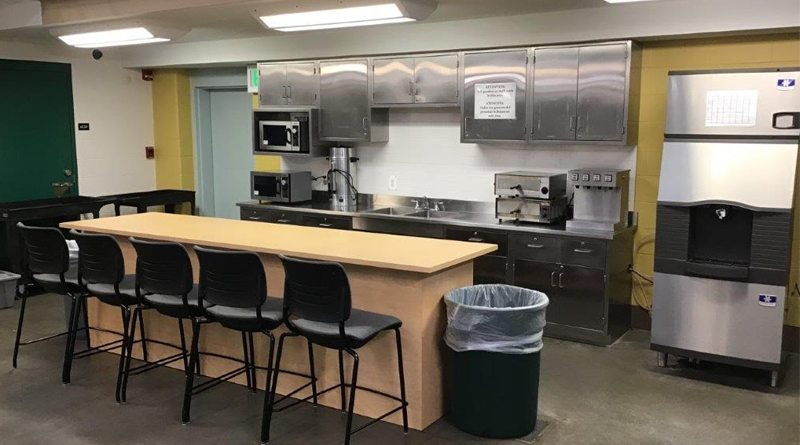North Dakota Unveils Prison Housing Unit for Young Adults
By CN Staff
BISMARCK, N.D.—Restoring Promise, an initiative of the MILPA Collective and the Vera Institute of Justice, has just opened a new housing unit grounded in dignity for young adults in North Dakota’s Department of Corrections and Rehabilitation (DOCR). More than 200 North Dakotans gathered at the North Dakota State Penitentiary, including family and friends of incarcerated people, to celebrate the new housing unit focused on creating a more restorative environment for incarcerated people from ages 18 to 25.
During the day, community members heard from agency leadership and incarcerated people about a focus on creating environments that are safer and fairer. Over the past year, incarcerated people and corrections officers collaborated with the architectural firm MASS Design to re-design a housing unit and create a communal space. Family members will also be able to see where their loved ones live and learn about their journey of healing.
“We should follow the lead of people who have experienced the harmful effects of a dehumanizing criminal legal system,” said John Pineda, deputy director of MILPA. “North Dakota is ushering in a new era in which incarcerated people are treated with respect, have access to resources, and live in restorative spaces.”
In the past decade, Vera has organized tours for senior U.S. corrections officials to learn how Western European countries sought to create a system rooted in dignity. The trip motivated several corrections leaders to improve their prison systems, and subsequently, Restoring Promise began applying an approach nationwide centering restoration, fairness, and safety.
“North Dakota is on a journey to improve how it treats people who are incarcerated by uplifting accountability, evaluating harmful policies, and championing human dignity,” said Restoring Promise associate director Clinique Chapman, who advises state leaders on prison reform.
Restoring Promise improves the living and working conditions in prisons by repurposing housing units for young adults (ages 18–25) and building communities that uplift healing, racial justice, and respect. DOCR’s Restoring Promise housing unit was designed in partnership with incarcerated people and frontline staff, ensuring those most impacted could shape a supportive community. Young adults chart their own paths to success with guidance from frontline staff and older mentors with lived experience in the criminal justice system. Volunteers, corrections staff, and mentors provide classes ranging from problem-solving, financial literacy, job readiness skills, and conflict resolution, preparing young people for a successful transition to their home communities.
“After 19 years of being bitter towards the prison system over not helping me in my time of need, the Restoring Promise initiative has helped me realize that the time I have left to serve is no longer about me but about being the help I didn’t have for these young men,” said a mentor living on the unit.
Through the partnership, corrections professionals learn management skills and restorative justice practices that lead to decreases in violent incidents and improved job satisfaction. Restoring Promise has also provided DOCR support with data collection, executive consultation, staff training, and family engagement to expand the department’s ability to provide care for incarcerated people.
“Providing a restorative environment for incarcerated individuals translates to healthy and productive neighbors and a safer North Dakota,” said Dave Krabbenhoft, DOCR Director. “When we offer support and help connect residents to their families and loved ones, formally incarcerated people are more likely to thrive when they return home.”
Currently, Restoring Promise also works in Colorado, Idaho, Connecticut, Massachusetts, and South Carolina to guide corrections departments toward the values of dignity and fairness. The initiative has enhanced the lives of both staff and incarcerated people. Namely, a one-year evaluation for the Restoring Promise housing unit in South Carolina’s Turbeville Correctional Institution in 2019 revealed significant improvement in the quality of life for staff and incarcerated people on the unit. One hundred percent of staff on that unit said they felt “safe working here,” and 90 percent agreed that the “unit is a positive environment.” Additionally, 80 percent of young adults on the unit agreed that their “family feels welcomed,” and 100 percent noted that they are “getting the support needed to succeed.”

